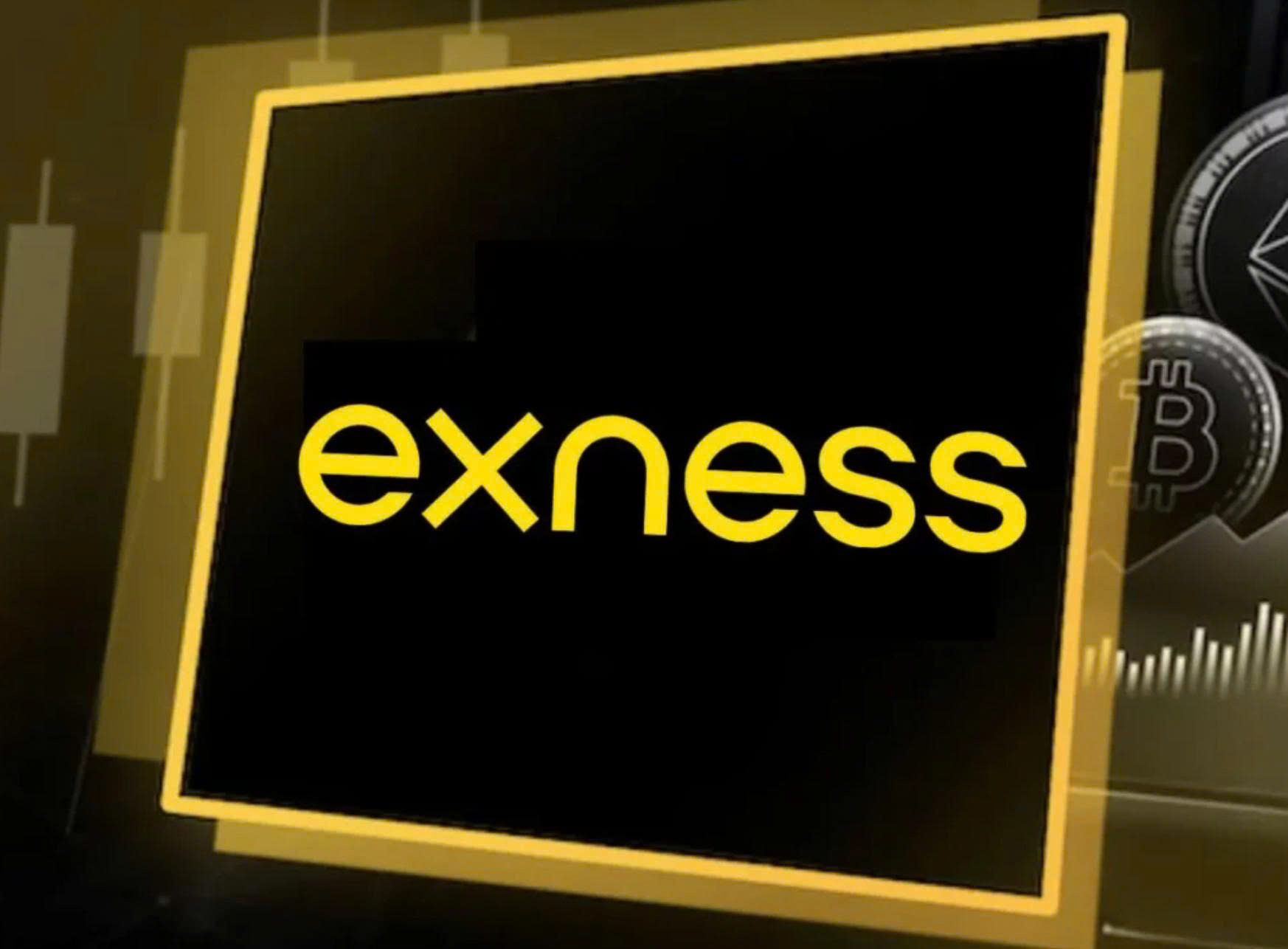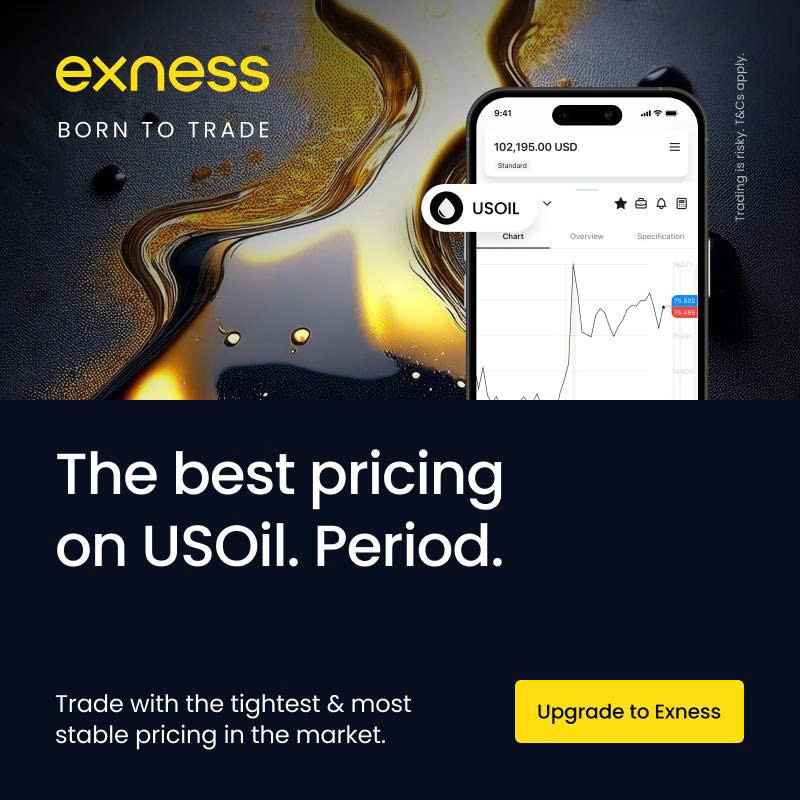
8 minute read
Exness vs Eightcap: Which Forex Broker is Right for You in 2025?
from Exness, Eightcap
If you’re diving into the world of Forex and CFD trading, choosing the right broker can make or break your experience. Exness vs Eightcap are two heavyweights in the industry, both offering robust platforms, competitive spreads, and a solid reputation. But which one is better for you? In this article, we’ll break down the key differences between Exness vs Eightcap—covering regulation, trading platforms, fees, account types, and more—to help you decide. By the end, you’ll know exactly which broker aligns with your trading style and goals.

✅ Trade with Exness now: Open An Account or Visit Brokers 👈
A Quick Snapshot: Exness vs Eightcap
Before we dive into the nitty-gritty, let’s set the stage. Exness, founded in 2008, is a Cyprus-based broker known for its ultra-low spreads, high leverage, and a massive global presence with over $4 trillion in monthly trading volume. Eightcap, established in 2009 in Australia, shines with its crypto CFD offerings and integration with advanced tools like TradingView and Capitalise.ai. Both are regulated by top-tier authorities, but they cater to slightly different trader needs. Let’s unpack this step by step.
1. Regulation: Who’s Got the Stronger Safety Net?
Trust is everything when you’re handing over your hard-earned cash to a broker. Both Exness vs Eightcap score high on trustworthiness, but their regulatory profiles differ slightly.
· Exness: This broker is regulated by multiple authorities, including tier-1 regulators like the UK’s Financial Conduct Authority (FCA) and the Cyprus Securities and Exchange Commission (CySEC). It also holds licenses from the Financial Sector Conduct Authority (FSCA) in South Africa, the Financial Services Authority (FSA) in Seychelles, and others. Exness segregates client funds, offers negative balance protection, and complies with strict Know Your Customer (KYC) and Anti-Money Laundering (AML) standards. This makes it a top pick for traders prioritizing safety.
· Eightcap: Eightcap is no slouch either, regulated by the Australian Securities and Investments Commission (ASIC), FCA, CySEC, and the Securities Commission of the Bahamas (SCB). Like Exness, it segregates client funds and provides negative balance protection. However, its regulatory portfolio is slightly less extensive than Exness’s, which might matter if you’re in a region with specific compliance needs.
Verdict: Exness edges out slightly with its broader regulatory coverage, especially for traders in regions requiring tier-1 oversight. But both brokers are highly trustworthy, so you’re in safe hands either way.
2. Trading Platforms: Tools That Fit Your Style
Your trading platform is your command center, so it’s crucial to pick a broker that offers the tools you love. Both Exness vs Eightcap support the industry-standard MetaTrader 4 (MT4) and MetaTrader 5 (MT5), but they each bring something unique to the table.
· Exness: Exness offers MT4, MT5, a web-based MetaTrader terminal, and its proprietary Exness Trade App, which is a game-changer for mobile traders. The app supports one-click trading, trailing stops, and pending orders, making it ideal for traders on the go. Exness also provides a social trading platform, perfect for beginners looking to copy seasoned pros.
· Eightcap: Eightcap also supports MT4 and MT5 but stands out with its integration of TradingView, a powerful charting platform loved by technical analysts. It also offers Capitalise.ai, a code-free tool for creating automated trading strategies—an absolute gem for traders who want to automate without diving into complex coding. However, Eightcap lacks a proprietary mobile app, which could be a drawback for mobile-first traders.
Verdict: Exness wins for mobile traders thanks to its slick proprietary app, while Eightcap is the go-to for those who love TradingView’s advanced charting or want to automate their strategies with Capitalise.ai.

✅ Trade with Exness now: Open An Account or Visit Brokers 👈
3. Fees and Spreads: Where’s the Best Value?
Nobody wants their profits eaten up by fees, so let’s talk costs. Both brokers are competitive, but their fee structures cater to different trading styles.
· Exness: Exness is renowned for its low spreads, starting from 0.0 pips on its Zero and Raw Spread accounts, with commissions as low as $0.05 per lot per side on the Zero account. The Standard account has spreads starting at 0.2 pips with no commissions, making it beginner-friendly. The minimum deposit is just $1 for some accounts, which is incredibly accessible. Exness also offers unlimited leverage (1:Unlimited), though this comes with strict risk management requirements.
· Eightcap: Eightcap’s Raw account offers spreads from 0.0 pips with a $3.50 commission per lot per side, while the Standard account starts at 1.0 pip with no commissions. The minimum deposit is $100, which is higher than Exness but still reasonable. Eightcap’s maximum leverage is 1:500, which is generous but doesn’t match Exness’s unlimited offering.
Verdict: Exness takes the lead for budget-conscious traders and those seeking ultra-low spreads or minimal deposits. Eightcap is still competitive, especially for commission-free trading on its Standard account.
4. Account Types: Flexibility for Every Trader
Whether you’re a newbie or a seasoned pro, having the right account type is key to tailoring your trading experience.
· Exness: Exness offers five account types: Standard, Standard Cent, Pro, Raw Spread, and Zero. The Standard Cent account is perfect for beginners, allowing micro-lot trading with a low entry point. The Pro, Raw Spread, and Zero accounts cater to advanced traders with tighter spreads and lower commissions. The $1 minimum deposit on some accounts makes Exness incredibly accessible.
· Eightcap: Eightcap keeps it simpler with two main account types: Standard and Raw. The Standard account is commission-free with wider spreads, ideal for beginners, while the Raw account offers tighter spreads with a commission, suited for scalpers and high-volume traders. The $100 minimum deposit is higher but still reasonable. Eightcap also offers a TradingView account for those who prefer that platform.
Verdict: Exness offers more variety, especially for beginners with its low-deposit Standard Cent account. Eightcap’s streamlined options are great if you prefer simplicity and TradingView integration.
5. Tradable Instruments: Diversify Your Portfolio
A broker’s asset range can open up new trading opportunities, so let’s see how these two stack up.
· Exness: Exness offers over 200 instruments, including 100+ Forex pairs, CFDs on stocks, indices, metals, energies, and 34 cryptocurrencies. Its focus on highly liquid instruments makes it a favorite for Forex and crypto traders.
· Eightcap: Eightcap shines with over 800 instruments, including 55 Forex pairs, indices, commodities, and an impressive 100+ cryptocurrency CFDs. Its crypto offering is broader than Exness’s, making it a top choice for crypto enthusiasts.
Verdict: Eightcap wins for traders looking to dive deep into crypto CFDs, while Exness is better for those focused on Forex and a broader range of traditional CFDs.
6. Deposits and Withdrawals: How Easy Is It to Move Your Money?
Fast, fee-free transactions are a must for any trader. Here’s how Exness vs Eightcap compare.
· Exness: Exness is a standout with instant withdrawals for verified traders, especially via e-wallets like Skrill and Neteller. It supports a wide range of payment methods, including VISA, MasterCard, Bitcoin, and local bank transfers, with no withdrawal fees. Exness also supports 40+ funding currencies, adding flexibility.
· Eightcap: Eightcap offers solid payment options, including PayPal, Skrill, Neteller, and bank transfers, but withdrawals take 1-3 business days. There’s a $100 minimum withdrawal for e-wallets, which is higher than Exness’s no-minimum policy. Eightcap also doesn’t charge withdrawal fees, but its payment options are less extensive.
Verdict: Exness is the clear winner for fast, flexible, and cost-effective transactions.
7. Customer Support and Education: Who’s Got Your Back?
Great support and educational resources can make all the difference, especially for beginners.
· Exness: Exness offers 24/7 customer support via live chat, email, and phone in multiple languages. Its educational resources include webinars, video tutorials, and a robust social trading community, making it ideal for newbies and pros alike.
· Eightcap: Eightcap provides 24/5 support, which is slightly less comprehensive than Exness. Its “Eightcap Labs” offers articles, eBooks, and webinars, but the content is less extensive than Exness’s. TradingView integration fosters a community-driven experience, which is great for technical traders.
Verdict: Exness takes the lead with round-the-clock support and richer educational content.
Final Thoughts: Exness vs Eightcap?
So, which broker should you choose? If you’re a beginner or a trader who values low deposits, tight spreads, and a stellar mobile app, Exness is your best bet. Its regulatory strength, instant withdrawals, and variety of account types make it a versatile choice for all levels. On the other hand, if you’re a crypto enthusiast or love advanced charting and automation tools like TradingView and Capitalise.ai, Eightcap is the way to go.
✅ Trade with Exness now: Open An Account or Visit Brokers 👈
Read more:

